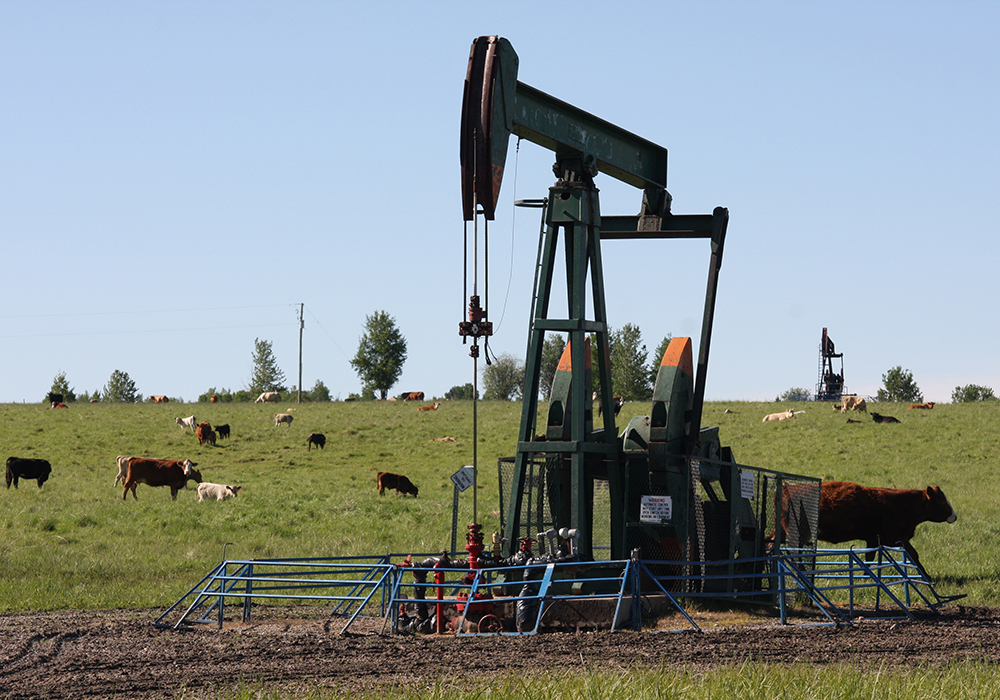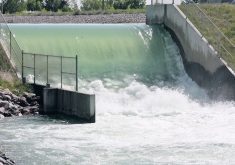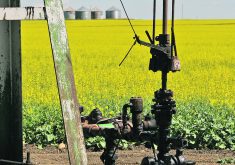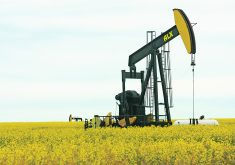CALGARY — Oil and gas companies are continuing to profit from Alberta’s resource riches without paying hundreds of millions of dollars in rural property taxes, says a new survey of the province’s rural municipalities.
A small segment of the energy industry is ignoring its community obligations while funneling profits to executives and shareholders, Paul McLauchlin, president of the Rural Municipalities of Alberta, said in a statement yesterday.
Related stories:
- Unpaid oil and gas tax problem grows in Alberta
- Property taxes remain uncollected as oil sector booms
- Alta. freezes energy sector’s municipal taxes
Read Also

U.S. government investigates high input costs
The USDA and DOJ are investigating high input costs, but nothing is happening in Canada.
“I’ll be blunt. Rural municipalities and all other companies and individuals paying property taxes are being used. We are being used by a small number of zombie oil and gas companies to not only subsidize the taxes they don’t want to pay, but to prop up their very existence.”
A survey by the RMA found its members were owed at least $251.8 million as of Dec. 31. It marked a decrease of only 6.2 percent from the previous total of about $268.5 million as of Dec. 31, 2022, which was itself an increase of 6.1 percent from about $253 million in 2021.
Although the total for 2022 was the largest such increase in a single year, it was 231.5 percent higher than 2018, when about $81 million was owed. The survey for 2023 is the sixth consecutive annual tally to be conducted by the RMA.
“Year after year, rural municipalities provide clear, documented and verifiable evidence that a select group of property owners are simply choosing not to pay their property taxes, and year after year, the problem drags on due to a lack of industry regulation and accountability,” said McLauchlin.
Although the results implicate a small number of companies within Alberta’s oil and gas industry, they are significantly adding to the tax burden on rural residents such as farmers and ranchers who must foot the bill for essential services such as roads.
“While all other property owners in the province face strict penalties for non-payment of property taxes, oil and gas companies continue to exploit legislative and policy loopholes and hide behind an industry regulator that has, for many years, refused to hold some companies accountable for poor business decisions, high liability risks and a lack of concern for the public interest,” said McLauchlin.
Rural municipalities agreed to several tax breaks in 2020 to help the then-ailing oil and gas industry, including a three-year tax holiday for new wells for the 2022 to 2024 tax years.
The RMA underlined two steps taken by the Alberta government to deal with delinquent companies, including amending the Municipal Government Act to restore a special lien that municipalities can use to retrieve property taxes.
Provincial officials also ordered the Alberta Energy Regulator (AER) to not approve license transfers or new licenses for companies with unpaid property taxes above $20,000, said the RMA.
“While both changes were steps in the right direction, neither target the companies that have the resources to remain operational and profitable but are not in a position to expand their holdings,” it said.
“The RMA’s survey showed that in 2023, just over 10 percent of members were able to utilize special lien status to recover unpaid taxes, and about 30 percent noted that the requirement on license transfers and acquisitions had a positive impact on their ability to recover taxes.”
The survey demonstrates that the provincial government’s steps to close loopholes and empower municipalities to enforce payment of taxes have had a minimal effect, said the RMA.
“While the simple solution would be to revoke a company’s license if it has property taxes in arrears, the AER’s hands-off approach to regulation has led to a situation where dozens of companies are operating with virtually no assets and very high liabilities,” it said.
“Requiring them to meet their property tax obligations would likely lead to a flood of thousands of wells into the Orphan Well Association. It is shocking that the AER has allowed the situation to reach this point and unfair that rural property taxpayers are being forced to prop up companies that have no business operating because the AER and Government of Alberta are not prepared for the outcomes of holding them accountable.”
Contact doug.ferguson@producer.com





![Alberta will no longer allow such [wind and solar] projects on Class 1 and 2 land unless they can demonstrate crops and/or livestock can co-exist with them, said Alberta Premier Danielle Smith. | Getty Images](https://static.producer.com/wp-content/uploads/2024/02/29164059/solar-panels-GettyImages-1032683612-235x165.jpg)










